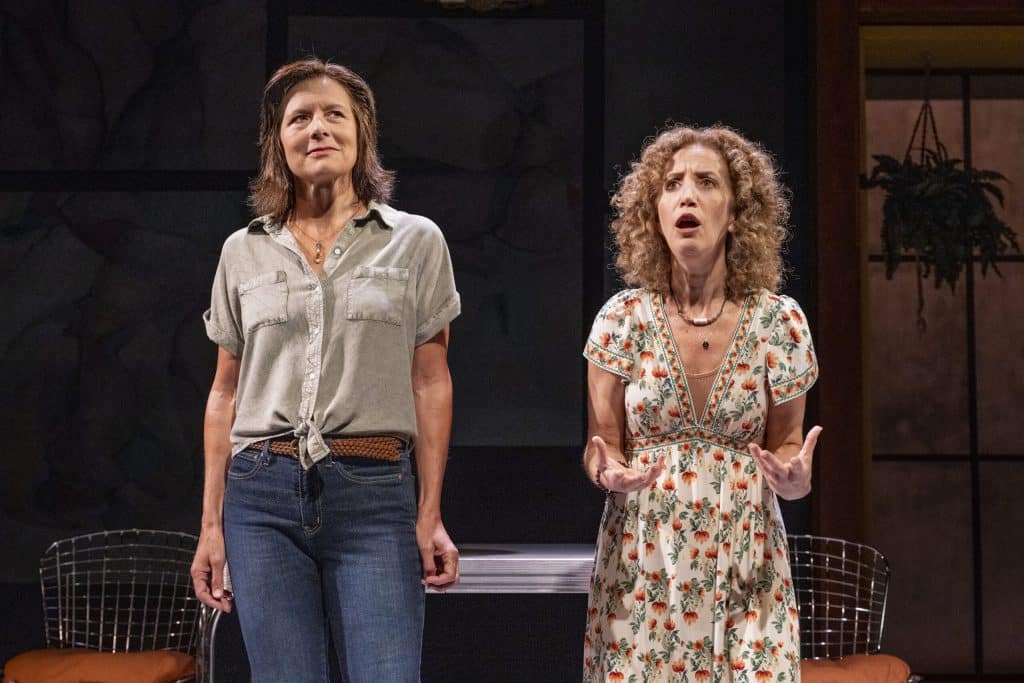Jennifer Van Dyck and Annie Meisels in Summer, 1976 at WHAT
Photo: Michael & Suz Karchmer
Review by Lee Roscoe
Summer, 1976 by David Auburn (who wrote the play Proof) at Wellfleet Harbor Actors Theater (WHAT) is a tour de force for actors Annie Meisels, and Jennifer Van Dyck, and for director Daisy Walker, as they make something out of a very slim story that is neither a comedy or drama. This is not a play in which characters interact with each other. Instead, it’s a novella about loneliness, where two characters for the most part talk in monologues to the audience about their lives, and their interactions with each other.
An artist, Diana (Van Dyck), and a slightly hippie housewife, Alice (Meisels), meet as their young daughters become friends. (We never see the daughters.) At first, having nothing in common, they underestimate each other, with the slightly pompous, highly cultured Diana looking down on Alice’s reading material—the pop novels of the time, Shogun and Coma, until Alice reveals she shares a love of painter Paul Klee with Diana. They begin to bond, and they get high together. Diana tries to end her own isolation by buying Alice a stylish desk. But Alice finds that, and Diana’s advice to have an affair with her husband’s grad student Merle, who is painting their house, to be condescending and controlling. There is a rift between the friends as Alice leaves to vacation with her husband, Doug.
Doug’s seeking tenure as a professor of economics. He has designed an elaborate chit system for their friends to share baby-sitting responsibilities, which is a constant topic throughout the play. On occasion, at climactic moments, the charismatic Van Dyck plays the husband Doug, whom we mostly hear about from Alice. (Doug’s character is sorely underdeveloped and would have been better served with a third actor playing him.) Predictably, the marriage flails—you must see the play to find out why. Alice turns to Diana for comfort and movingly, they confront their own failures. But the friendship never again solidifies—they go their separate ways in life and marriage, though Diana fantasizes about how it would be if they started over as friends together going after a new life and success.
Diana is acerbic and contrary, she hates kids, but she loves kids. She is turned on by the smell of paint. She has some very funny lines. We never really find her backstory. Alice is more openly endearing, finding joy as years progress in teaching middle schoolers, in her grandkids, and her daughter’s success, while Diana’s daughter is troubled, perhaps a victim of her mother’s inability to bond with other human beings. Even though they seem to end up doing fine—we feel their vulnerability and emptiness as they both live the trivial lives of the discreet bourgeoisie.
Summer, 1976 is performed on the Julie Harris Stage at WHAT, 2357 Rte. 6, Wellfleet, Tuesdays – Saturdays, 7 p.m. through August 31. For tickets: ($45/41.50 seniors/$15 students $15 partial view) and information call 508.349.9428 or visit what.org.











